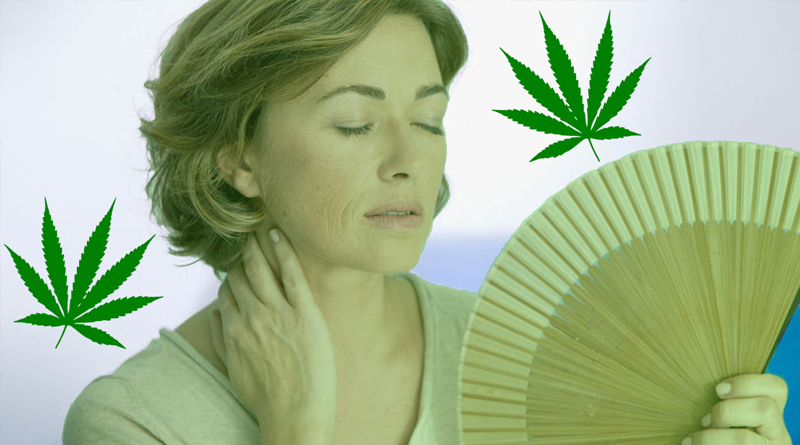Image via
This won’t be a surprise to anyone who has a uterus and is over 50-years-old, but people use cannabis to deal with the hellacious effects of menopause. A new Canadian study from the University of Alberta, whose respondents had an average age of 49, says that one-third of women used cannabis in the last month, and that three-quarters did so specifically to treat the medical symptoms that overlap with those caused by menopause.
Many of these women were puffing tough, as well: 43 percent of users said they consume weed at least once a day.
“Our study confirmed that a large percentage of midlife women are using cannabis for symptoms that overlap with menopause, especially those women who reported more symptoms,” said Katherine Babyn, study author and graduate student, in a statement. “In addition, many of these women are claiming to get relief for their symptoms through the use of cannabis.”
Marijuana can be used to lower one’s body temperature, and many cannabinoids and full-spectrum products are marketed as sleep aids (though, heavy usage may have the opposite effect, some studies show.)
The study also reports that participants get their information about cannabis from the internet (a whopping 46 percent), and family and friends (34 percent.)
The results of the investigation will be presented at the annual meeting of the North American Menopause Society. The group was founded in 1989, is made up of 2,000 health and education professionals who are interested in the drastically-under-studied field of menopause health, and publishes the scientific journal Menopause.
Last year at the same NAMS gathering, a smaller survey of 232 women veterans with an average age of 56, found that 27 percent had used cannabis to manage symptoms. The most common ailments reported for cannabis treatment were night sweats, insomnia, and symptoms relating to the genitals and urinary organs.
And this is pretty wild: Even though cannabis’ effects on menopausal symptoms are understudied, only 19 percent of last year’s survey respondents said they had used menopause treatments more commonly accepted by medical institutions, like hormone therapy.
“These findings suggest that cannabis use to manage menopause symptoms may be relatively common,” said the lead author of that study Carolyn Gibson of the San Francisco VA Health Care System. “However, we do not know whether cannabis use is safe or effective for menopause symptom management or whether women are discussing these decisions with their healthcare providers.”
To state it plainly: Menopause is a condition that deeply impacts the lives of people with uteri, and its effects and treatment need to be a higher priority for medical institutions.
“This [NAMS] study highlights a somewhat alarming trend and the need for more research relative to the potential risks and benefits of cannabis use for the management of bothersome menopause symptoms,” Dr. Stephanie S. Faubion, NAMS’s medical director and a clinician who specializes in women’s health, told Healthline.











